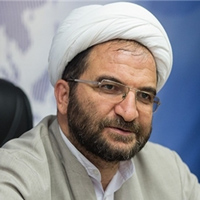Digging into the concept of Indian and Egyptian New-Mu'tazila based on Goldziher's Popinions
Although the understanding of New-Mu'tazila from Islam has had important consequences, there is ambiguity and confusion in its essence and origin. Some thinkers have spoken about early and late New-Mu'tazila. They consider the early New-Mu'tazila led by Seyyed Jamal and Abdeh and the late New-Mu'tazila generally to the Egyptians of the last few decades.; While they usually neglect the India Neo-Mu'tazila movement and introduce Egypt as the main home of the Neo-E'tezal movement. For this reason, the main issue is to explain the conceptual and objective dimensions of the early Indian and Egyptian Neo-Mu'tazila and the relationship of each one with the other. This article refers to the works of Goldziher, i.e. the first person who used the title of Neo-Mu'tazila and discussed the flowology of these two spectrums, by referring to library sources with an explanatory and analytical method. He was a contemporary of two Egyptian and Indian currents, studied their works and scientific sources and had meetings with Seyyed Jamal. He believes that although there are affinities between these two streams, they cannot be placed next to each other. For this reason, he adopted a negative view of Egyptians being neo-Mu'tazilis and is more inclined to describe them as a movement close to Wahhabism. Although it also provides evidence against this description. Evaluations show that it is correct to distinguish between the Indian and Egyptian currents, but considering the deep break between the Indian current and the old Mu'tazila, calling this current as Neo-Mu'tazila is questionable. If we consider this movement to be Neo-Mu'tazila, considering the affinity they have with Nomu'tazil's thoughts of recent decades such as Abu Zayd, we can refer to them as the background of these people.
-
A look at the religious ideas of Neo-Mu'tazilah in Egypt
Hossein Arefiniya *, , Moslem Mohammadi
Motaleat - e - Taghribi Mazaheb - e - Eslami, -
A Typology of Traditional Islam in terms of Constant and Variable Elements of Religion
Seyed Ali Bathaei *, Mehdi Farmanian, Ebrahim Qasemi
Pajouheshname - ye - Mazaheb - e - Eslami, -
A critical rereading of Tabatabai's Madrasi point of view regarding the place of debate in the first centuries of Imamia
Mogtba Moradimaki *, Safdar Rajabzadeh, Mehdi Farmanian
Journal of Kalam Pajouhi, -
The resurrection of the same and like parts of the human body in the resurrection from the perspective of Imamiyyah and Matridiyyah
Hoseyn Arefiniya *, , Seyyed Lotfullah Jalali, Moslem Mohemmedi
Journal of Religious Thought, -
Examining Taha Abdul Rahman's view on the relationship between science and religion
Hadi Beygi Malekabad *, Mohammad Hasan Beheshti
Studies Of Moslim Contemporary Thought, -
The Revolutionary Islamic Identity and the Revolutionary Woman from the Perspective of Ayatollah Mohammad Baqir Al–Sadr
Hadi Beigi Malek Abad *, Zeinab Mehanna
Journal of Contemporary Islamic Studies, Winter-Spring 2024


